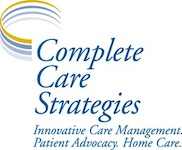Take it to Heart
Heart disease can be caused by a variety of factors such as genetics or a physical problem, but an increasing number of cases are being caused by poor nutrition. Whether you are taking precautions to avoid heart disease in your loved one’s life, or are just now changing the nutrition habits of your loved one after a heart condition has been diagnosed, there are important decisions that can make a significant difference in one’s health.
Three issues that must be faced early-on when choosing a heart-conscious diet are:
1. Keeping as ideal a weight as possible
2. Decreasing saturated fat intake
3. Reducing sodium levels
Realizing that some sacrifices will have to be made is the first step to improving nutrition and to meet the goals of improved heart function and increased vitality. Here are some dietary approaches that may help you in caring for a loved one.
The Good & The Bad
- Avoid processed foods that have high amounts of sodium
- Foods such as peanut butter, salad dressings, and frozen dinners are high in sodium and therefore should not be used in preparing meals
- All alcohol consumption should be minimal
- Less than 30% of total calories should come from fat
- Cheese, nuts and lunch meats should be kept in moderation
- Potassium supplements should be implemented into the diet
- An increase in fiber within the diet can reduce fat levels. Whole grain cereals, bran, and wheat breads all have high amounts of soluble fiber
- Small meals throughout the day work best, rather than three main meals
- Cholesterol intake should be minimal. Foods such as cheese and eggs have outrageously high amounts of this artery clogger
- Fruits and vegetables should be instrumental in the diet and, while it is stated that the average American should have 5 servings daily, for those with a heart condition it is advised that 6-8 servings is heart healthier
- Cigarettes can cause high blood pressure and should be avoided
- Colas, coffees, and teas should be minimized to avoid the caffeine and its adverse stimulation to the body
Our heart goes out to you for making these small changes that will make a big difference to how you feel!
Lois Young-Tulin
Lois Young-Tulin, PhD, is an Assistant Geriatric Care Manager at Complete Care Strategies

